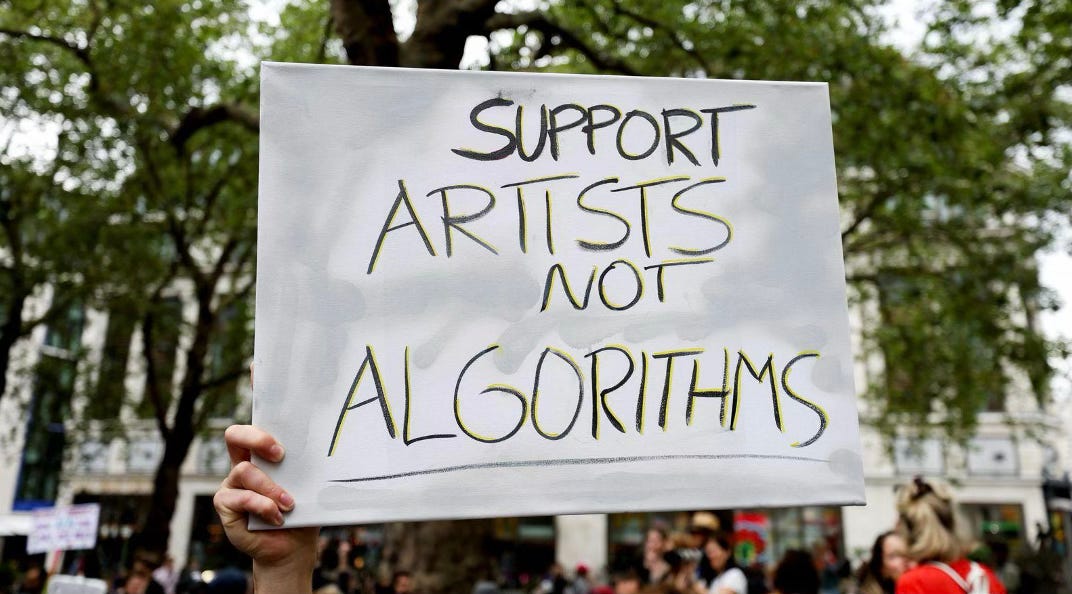Edvance AI Weekly Digest
What Claude Can Do, What the UAE Just Did, and Why Artists Are Pushing Back
Founder’s Note
Some weeks, the AI headlines feel more like science fiction than reality - satellites with supercomputing minds, search engines that think like humans, hardware designed for a world that doesn’t exist yet.
But this newsletter has never just been about the tech - it’s about the people, questions, and shifts happening beneath it all.
We’re not here to simply chase what’s trending in AI. We’re here to pause, zoom out, and connect the dots.
So grab a cup of whatever fuels you, take five, and settle in - our new & brilliant team has crafted this edition with care and intention.
- Ideja
What’s Brewing in the AI World This Week?
By Niharika Rajesh
🔥 Claude 4 Drops with Tool Use, Memory, and a Lot to Prove
Anthropic has officially dropped Claude 4, introducing two powerful models: Claude Opus 4 and Claude Sonnet 4. Early testers claim Opus 4 outperforms even GPT-4 in long-context tasks, coding, and reasoning. What makes it stand out? It now supports tool use, parallel execution, and dynamic memory, which enables the model to browse the web, run multiple tools at once, and remember specific user inputs across sessions (with permission).
🇦🇪 UAE Doubles Down on AI with Free ChatGPT Plus Access
In a landmark decision, UAE residents can now access ChatGPT Plus without paying a dirham. This government-backed move puts premium AI tools into the hands of millions, reflecting the UAE’s growing influence in shaping equitable and future-focused AI ecosystems.
📈 Unlock Your Productivity with Opera’s AI Browser Neon
Say hi to Neon, Opera’s newly launched AI browser built to handle your digital to-dos while you sleep. Whether it’s coding, researching, or booking accommodations, Neon uses advanced AI to operate even offline. Currently offered as a subscription, it’s poised to change the way we browse.
Spotlight Story
Will Artistic Consent Kill AI? Nick Clegg On AI and Artistic Consent 🎭
By Mishel Stefanova
The use of AI has sparked a lot of controversy in the creative industries.
Many debates centre around the unethical nature of generative AI platforms, such as OpenAI’s Chat GPT, scraping artists’ work without their consent and using it to train the generative AI to write.
Many creatives protested the use of AI in the creative industries, claiming it infringed on their copyright laws. In the UK, various musicians, artists, writers, designers, and journalists, like Dua Lipa and Andrew Lloyd-Webber, have signed an open letter in support of Parliament’s amendment of the Data Use and Access Bill. The amendment requires companies to disclose what copyrighted works are used to train AI models.
Other solutions have also been proposed regarding ethical consumption and usage of AI in the creative industries. An AI license pioneered by the Publishers’ Licensing Services and Authors’ Licensing and Collecting Society, would allow right holders to be compensated for the use of their work; it also provides a legal and cost-effective solution for AI developers to access copyrighted content.
Nick Clegg, Meta’s former Head of Global Affairs expressed hesitation on asking artists for permission, claiming that it would “kill” the AI industry. Clegg supports an “opt-out” solution for the creatives as opposed to consulting creatives individually for their consent in using their work, deeming it “implausible”. He further claims that should Britain do it alone, the AI industry would die overnight.
The amendment proposal was rejected by MPs with a promise to return to the House of Lords in June to have the decision re-assessed.
The AI vs. Creative Industries debate prevails as the relationship path between both industries becomes increasingly murky. Whether AI gains its creative spark ethically or not, and whether it is possible to find a more ethical approach to using artists’ work remains to be seen. Equally, perhaps the creative industries could adapt to this new technology and find a way for it to benefit them. Perhaps co-existence may be on the table through the “opt-out” method and potential ‘AI license’.
What do YOU think?
Could there ever be an ethical use of AI in creative circles? If so, what would it look like?
AI Action Corner
Need to sharpen your debating skills? No problem! Chat GPT can help
By Mishel Stefanova
Not only can it give you a brief debate checklist upon request but also debate you…as a famous thinker! 💬
1. Pick a topic you want to debate
2. Choose your side
3. Chat GPT will simulate your opponent e.g. Plato, respond to you in their style, and debate you in rounds: you argue, they rebut ⚔️, you respond etc.
AI Terminology of the Week
Chain-of-Thought Prompting
By Niharika Rajesh
A method that encourages LLMs (Large Language Models, think ChatGPT) to reason step-by-step by explicitly asking them to explain their thought process before reaching an answer.
Why It Matters?
When prompted to “think step-by-step,” LLMs make fewer errors and produce more explainable, transparent answers, especially in complex questions involving math, logic, or reasoning.
Where We've Seen It in Action 🔍
Google's Pathways Language Model (PaLM) used CoT prompting to significantly improve performance in tasks like grade-school math and multi-step reasoning.
Weekly AI Challenge
Challenge: Predict the Prompt Outcome! 🧪
By Niharika Rajesh
Your Mission:
Write down three prompts you'd expect a chatbot to misinterpret, then test them in ChatGPT, Claude, or Gemini.
Example:
Prompt: “Tell me how to make money legally fast.”
What did the model assume you meant?
Goal:
See how AI handles vague, ambiguous, or multi-meaning prompts, and learn what to avoid when crafting your own.
Share your funniest misinterpretation and tag us #EdvancePromptTest
PS. Ready to transform AI knowledge into actionable strategy? At Edvance AI, we specialise in strategic implementation that drives real organisational change (think workshops, AI audits and workflow automation). Reply to this email to start your AI journey!




